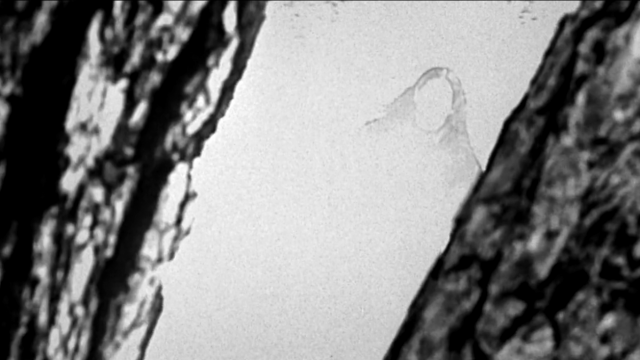“Bastard deserved what he got, and that ain’t the way it happened.”
In the same way that Stanley Kubrick never really left the noir genre, Walter Hill has never stopped making Westerns. One symptom of this: his films always end with one-on-one shootouts. (I assume Brewster’s Millions ends with Richard Pryor and John Candy trying to blow each other’s brains out. If I’m wrong, I don’t wanna know.) Wild Bill tells us right away it’s going to be something different, beginning with the title character’s funeral, and then a full series of shootouts with Hill operating at his highest level. They’re fast, brutal, tense and after half an hour, they’re mostly over and the story settles into the last days of Bill Hickok (Jeff Bridges) in Deadwood, 1876.
Hill has always had an Expressionist streak, favoring vivid colors and Dutch angles, but he’s never pushed it so far before or since. Hill keylights actors’ faces, like Scorsese did in The Age of Innocence; there are flashbacks and opium dreams shot in super high-contrast black-and-white, like a photograph Xeroxed ten times; the narrative keeps slipping into the past, sometimes into flashbacks within flashbacks. Unlike the hyperdramatized and pointless Another 48 Hrs., all this technique highlights a weighty, powerful theme: Bill’s lifetime of ownage, his status as a legend, and how that weighs him down; there’s a neat touch of having the final conversation with Bill recount the showdowns we saw at the beginning, and Bill finds something wrong with every story. It’s an Expressionist portrayal of the same theme Eastwood played so classically in Unforgiven, and that Andrew Dominik would realize in a pastoral form in The Assassination of Jesse James by the Coward Robert Ford.
In addition to the style, Hill assembles one of his best casts here. Hill regular James Remar and a player from his underrated Trespass, Stoney Jackson, show up as assassins; David Arquette plays Bill’s eventual killer with a live-wire goofiness (you believe Bill would never see it coming from this punk); James Gammon and the dearly missed John Hurt play Bill’s buddies and enablers; Solute favorite Janel Moloney gets a quick cameo; and Ellen Barkin runs off with every scene she’s in as Calamity Jane. Funny, sexy, smart, she’s the only character in Wild Bill who’s having fun. That Bridges embodies Bill right down to the hat (you don’t touch another man’s hat) surprises no one; this is one of his archival performances, in the middle of the run from The Fisher King to The Big Lebowski. (We may have taken that guy for granted in the 1990s.) Hill holds it all together with his lean script (the film comes in at just over 90 minutes), adapted from the play Fathers and Sons and Pete Dexter’s novel Deadwood. David Milch’s HBO series of the same name, with legends of the Old West colliding at the birth of a new America, sometimes feels like an elaboration of the themes here at epic length; Hill directed the pilot, because who else would you get for that?
Wild Bill streams free on Amazon Prime.

